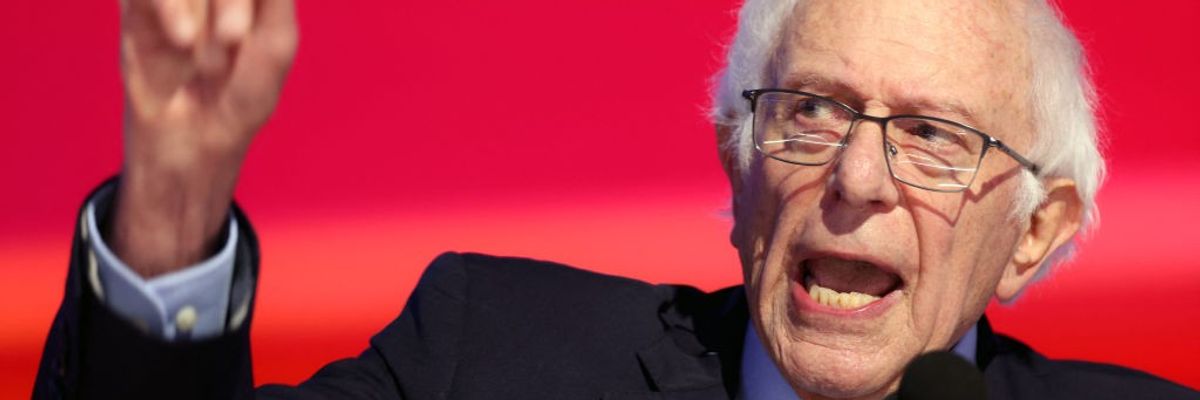With the progressive movement in the United States still grappling with how best to respond to president-elect Donald Trump's victory earlier this month, Sen. Bernie Sanders issued a statement Saturday clarifying his belief that confronting the ruling oligarchy over the "coming months and years" will be the key battle for anyone who wants to build an economy and political system that puts the interests of everyday working people ahead of those of super-wealthy elites.
The Independent U.S. Senator from Vermont suggested Trump's victory was the direct result of a political economy largely controlled by the nation's richest individuals and powerful corporations and a situation in which massive wealth inequality has also created an incredible power imbalance.
"This is what Oligarchy looks like," Sanders said. "Today, while 60% of Americans live paycheck to paycheck, three multi-billionaires own more wealth than the bottom half of American society."
With a "greater concentration of ownership than we have seen since the Gilded Age," Sanders continued, from healthcare and financial services to the food, transportation, and housing sectors—"fewer and fewer giant corporations control what is produced and the prices we pay."
Sanders slammed a corporate media system in which corporate consolidation has led to an information and entertainment ecosystem in which an estimated "90% of U.S. media is controlled by just six huge global conglomerates," and a political system "increasingly controlled by the billionaire class" that is allowed to inject nearly limitless amounts of money into elections, most of it secretly and without accountability.
"In the recent elections," Sanders bemoaned, "just 150 billionaire families spent nearly $2 billion to get their candidates elected." Such a reality, he said, must be challenged.
"Our job in the coming months and years is clear. We must defeat the oligarchs and create an economy and government that works for all, not just the few."
How can such a defeat of these powerful forces be achieved? Sanders' latest statement did not reveal a prescription, but in a series of recent missives, social media posts, and interviews over the last week, the two-time presidential candidate has said that focusing on building working-class power is the key.
In a letter to supporters last week, Sanders said the question of "where do we go from here?" is a "very serious" one that demands deep scrutiny in the coming weeks and months. And he asked a series of more specific questions that he said must be addressed, including:
- How do we expand our efforts to build a multi-racial, multi-generational working-class movement?
- How do we create a 50 state movement, not politics based on the electoral college and “battleground” states?
- How do we deal with Citizens United and the ability of billionaires to buy elections?
- How do we recruit more working-class candidates for office at all levels of government?
- Should we be supporting Independent candidates who are prepared to take on both parties?
- How do we better support union organizing?
- How do we put together listening sessions around the country that intentionally seek input from people who did not vote for Democrats in the last election?
- How do we best use social media to build our movement and combat the lies and disinformation coming from the billionaire class and right-wing media?
In a subsequent interview with The Nation, Sanders it is "absolutely" necessary to find ways to challenge both the Democratic Party and the Republican Party, both of which are dominated by corporate interests and wealthy donors.
"We just cannot sit back and accept candidates who are not prepared to stand up to Big Money interests and fight for the working class," Sanders said. "We cannot continue to do that. So, in one way or another, we have got to bring forth candidates who [will stand up to Big Money]."

